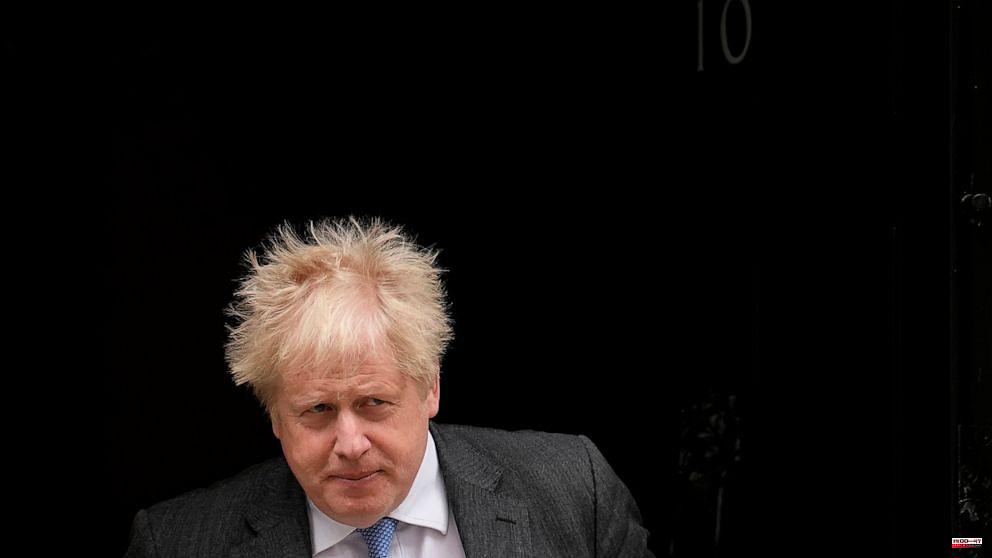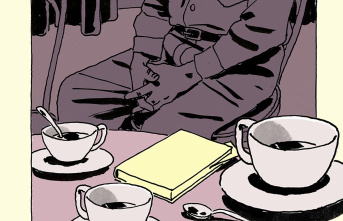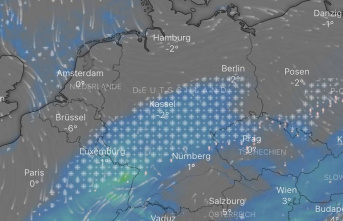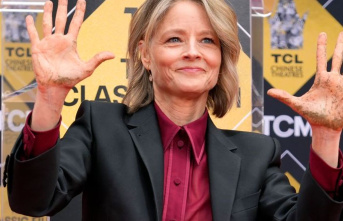LONDON -- At least one other world leader felt relief when Boris Johnson, the British Prime Minister, survived a no confidence vote this week.
Volodymyr Zelenskyy, President of Ukraine, said that it was "great news” that "we haven't lost a very important allies."
It was a welcome boost to a British leader, who has divided his country and his party but has been widely praised as an ally for Ukraine.
Johnson's narrow victory in Monday’s Conservative Party vote has implications that go beyond Britain's borders. It left him in power, but in danger of more rebellions.
David Lawrence, a Chatham House research fellow on international affairs, said that it is difficult to address any international challenges while fighting your own party.
Johnson is not without its foes in London or at the European Union headquarters in Brussels. However, he is more welcomed in Kyiv. Johnson's staunch support for Ukraine's fight against Russian invasion, supported by 3 billion pounds ($3.8 million) in U.K. military aid and humanitarian aid has earned him many admirers. A Ukrainian bakery has created a sweet treat called the "Boris Johnson", a puff pastry cake with meringue and cream that is vaguely reminiscent the British leader's mop.
Lawrence claims that Johnson's relationship with Zelenskyy -- both "very big personalities" -- has been a benefit for both leaders. Experts say Johnson's weakness will not have a significant impact on Britain's support for Ukraine.
Both Britain's governing Conservatives as well as the Labour Party left-of-center are strong supporters of military assistance to Kyiv, and harsh sanctions on Moscow.
Lawrence stated, "I believe any British government would do the same."
Johnson's woes will have more immediate consequences for Britain's relations to the EU. Johnson won election on the promise to "get Brexit done". He has been battling with the bloc over trade rules in Northern Ireland, which is the only area of the U.K. bordering an EU member.
Unrest over customs controls on goods entering Northern Ireland from other parts of the U.K. has created a political crisis that threatens the fragile balance between British unionist and Irish nationalist communities, which is essential for maintaining peace in Northern Ireland.
Both Britain and the EU accuse each other of refusing compromise. Johnson now claims he will act unilaterally and, critics claim, illegally by passing a law to dismantle a portion of the binding agreement he signed with the EU.
This bill was expected to be passed this week, but it has been delayed by the no-confidence vote. Experts believe Johnson has less room to maneuver because he cannot afford to offend either Brexit hardliners or pro-EU lawmakers. The EU has been less open to compromise, which has increased the likelihood of a trade war with Britain.
Anand Menon, Director of the U.K. at a Changing Europe think tank said that "The European Union increasingly believes that Boris Johnson's strength is too low to be worth making concessions." "(There is) an EU sense that we should make concessions because this guy might not stay in charge for very long."
Johnson's foreign policies are centered on Brexit. Johnson has long believed that the UK's exit from the EU allows it to be a "Global Britain", forming new trade agreements and alliances all over the globe.
To counter China's growing assertiveness, he has given the U.K.'s foreign policy an "Indo Pacific tilt". This aims to strengthen diplomatic, military and economic ties with countries like India and Japan. Lawrence claims that Lawrence's government has proposed to shrink the diplomatic service and cut foreign aid.
Johnson's no-confidence vote was prompted by lockdown-breaching parties held in government buildings during the COVID-19 epidemic. Johnson's staff attended the events, and in some cases, the prime minister. Anger erupted in the country when it was revealed that government officials had been drinking while millions of Britons were prevented from visiting their dying relatives or socializing with their friends. This revelation also raised concerns among Conservatives about a leader who behaves like rules don't apply.
Johnson cannot face another challenge within a year under party rules. However, 41% of Conservative lawmakers voted for Johnson's removal and few people believe that he is secure in his job.
Johnson's ouster or resignation will result in the party electing a new leader who will become the party's prime minister. Many potential candidates have solid track records in foreign affairs, which could change the U.K.'s international policy. Current Foreign Secretary Liz Truss advocates a "network for liberty" that includes capitalist democracies. Ex-Foreign Secretary Jeremy Hunt spoke of a values-based foreign policy. Tom Tugendhat, a lawmaker and head of the influential House of Commons foreign affairs committee, is hawkish about China.
Mujtaba Rahman is the Eurasia Group's managing director for Europe. He says it remains a key challenge to fix the U.K.’s relationship with Europe. This includes helping to repair a transatlantic relationship that has been strained by Brexit. Joe Biden, a strong defender of his Irish roots, expressed concern that Britain's actions regarding EU trade might undermine peace in Northern Ireland.
Rahman stated that a lot depends on how Europe is viewed. "Recalibrating the EU relationship will clearly facilitate the relationship between the Biden administration and it."
Boris Johnson is the obstacle, he believes.
He stated, "I believe it's a structural problem with this government and Johnson." "I don't see any improvement in the situation until Johnson is replaced."












